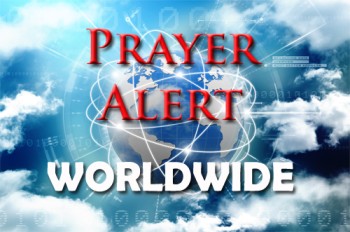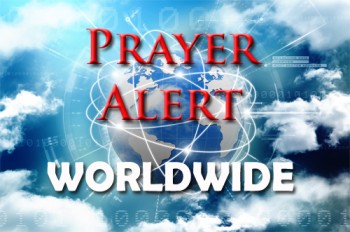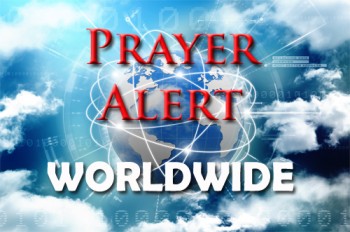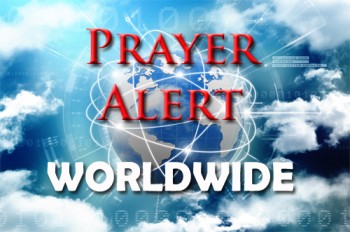Displaying items by tag: Tunisia
Tunisia: forty opposition figures put on trial
The trial has begun of forty prominent Tunisian opposition figures accused of conspiring against state security. The proceedings sparked outrage as nine detained defendants were forced to attend remotely, a move decried as a violation of fair trial standards. Families of the accused and demonstrators outside the courthouse demanded transparency and judicial integrity, chanting against political repression. While critics regard the trial as part of president Kais Saied’s crackdown on dissent, some citizens support his actions, blaming the opposition leaders for economic hardships. International organisations, including Amnesty International and the UN, have condemned the mass prosecution as a sign of Tunisia’s democratic decline. Meanwhile, the country’s economic crisis deepens, with inflation, unemployment, and stalled IMF negotiations adding to public discontent. The outcome of the trial could shape Tunisia’s political future and global standing.
Tunisia: the road to democracy
With the first steps towards a democratic government in 2019, Tunisians hoped their political institutions and politicians would respond to the needs of the population. The Arab Spring called its leaders to account, looking for diversity and accountability. President Kais Saied was elected. They wanted democracy, but it takes time. On 25 July, after nationwide violent protests over economic and social turmoil and the government's poor handling of Covid cases, Tunisia's president sacked the prime minister and suspended parliament. When Saied announced he was taking over, opponents immediately accused him of staging a coup. Sadly, Arab Spring has not led to a stable economy or politics. Saied said he took these decisions ‘until social peace returns and we save the state.’ He vowed to respond to further violence with military force.
Tunisia: youth protests sweeping country
A growing groundswell of youth unrest, tapping into a well of economic frustration, is sweeping Tunisia, the country which triggered the 2011 ‘Arab Spring’. A third of the nation’s young people are unemployed. Many are angry about their poverty. Since 14 January they have taken to the streets in violent marches. There have been 1,000 arrests, and the army has been deployed in four hot spots. Protest groups are growing in size and are out in force every night staging simultaneous, often-violent demonstrations: pelting municipal buildings with stones, throwing Molotov cocktails, looting, vandalising, and clashing with police in poor, densely populated districts. By 24 January hundreds more were protesting against police repression, chanting, ‘No more fear, the streets belong to the people’ and ‘The people want the fall of the regime’ - popularised during the Arab Spring. They also called for the release of hundreds of protesters detained recently. See
Tunisia: bombs target security forces
Two explosions rocked Tunis on 27 June, targeting security positions. One blast struck a security vehicle in a busy area of the capital, while the second targeted a police building. A number of police personnel and three civilians were killed. Tunisia has been battling militant groups operating in remote areas near the border with Algeria since an uprising overthrew autocratic leader Zine Abidine Ben Ali in 2011. Since the revolution, dozens of the security forces and 59 foreign tourists have been killed. After an IS-claimed suicide bombing killed twelve presidential guards in 2015, Tunisia has been under a state of emergency. Tunisians made up a large component of the foreign fighters in IS, while the porous border with neighbouring Libya has also aided militants. Spiritually Tunisians are being exposed to the truth of the gospel as they interact with believers on social media sites and search Christian websites.
Tunisia: Muslim leader calls for conquest of nations
Recently, at an Islamic Caliphate conference, Said Khecharem, who is affiliated with the pro-Sharia, pro-caliphate organisation Hizb- ut-Tahrir, declared that the ‘establishment of an Islamic state requires the conquest of America, Britain, Russia, France, and Italy. Other infidel lands will be conquered, Allah willing.’ According to the Middle East Media Research Institute, he also said, ‘The most important thing is to restore the rule of the Muslims, through the Quran and the Sunna, in order to renew Islamic life and to deliver the Islamic message to the world. My brothers, the implication of this today should be the establishment of an Islamic state over all the lands of the infidels.’ Some in the west are noting that even now relatively few mosques or Islamic schools teach young Muslims why they should reject the violent understanding of Islam taught by al-Qaeda, IS, and other terror groups.
Tunisia: potential for change
There are many Christian ministries in Tunisia but only one officially recognised Christian body, a training ministry called the Augustine Association, which managed to get registration during the upheaval of the Arab Spring. Christians mostly gather for worship in homes, but some are too fearful of persecution to attend such meetings. After many postponements, municipal elections will be held on 6 May. Tunisian Christians ask for God’s hand to be over these elections so that their country will once again become a blessing for the whole region, as it was in the days of the early Church. The media reported that over 75% of the registered candidates are under the age of 45, with over 50% under 35. The high number of young fresh politicians running for election for the first time came as a shock to the political parties and blocs, and indicates potential changes in the coming years. See





